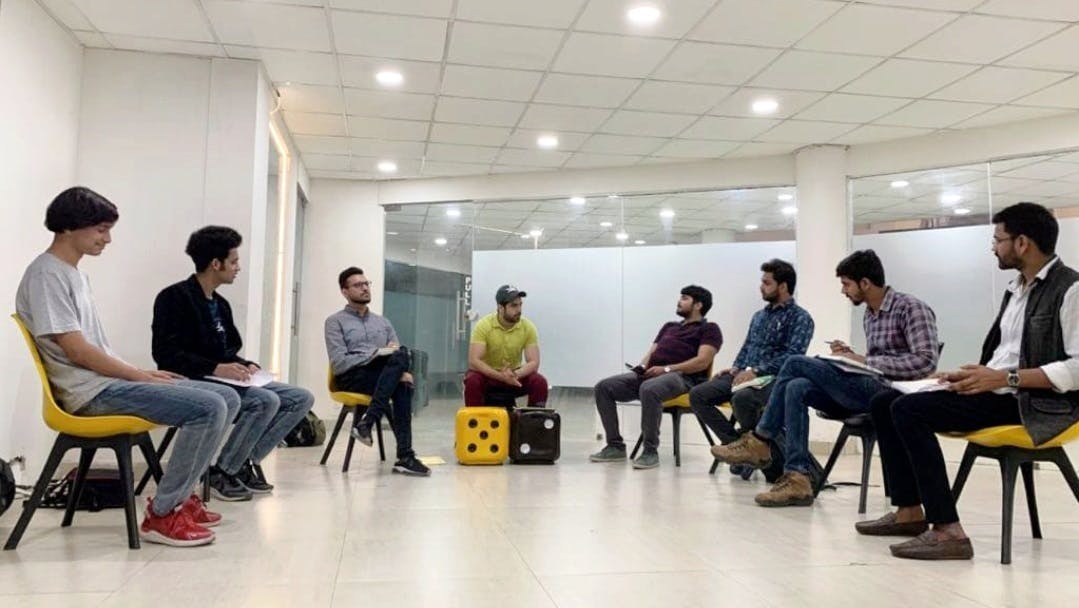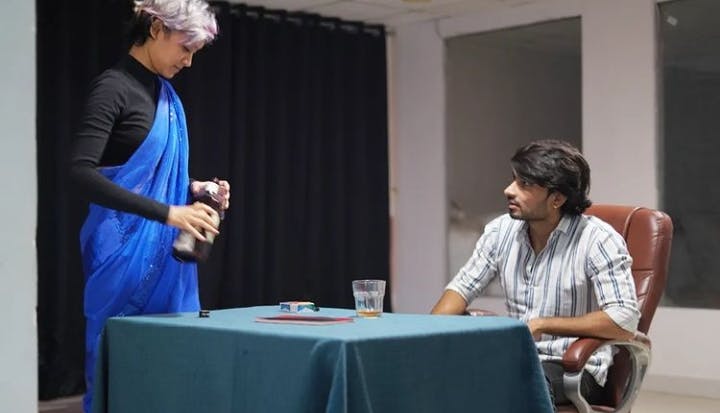Wed Jan 24 2024
What Is The Best Age To Start Acting?
The world of acting has always held a certain allure for those with a passion for performance. In this blog post, we'll dive into the captivating realm of acting and explore the question that plagues many potential thespians: "What is the best age to start acting?"
But first, let's address the elephant in the room. Is there really a 'best' age to start acting? The short answer is no.
Success in acting knows no age boundaries. Whether you're a wide-eyed child, a determined teenager, or an adult with life experience, there's a place for you in the world of acting. Let's explore why.
The Benefits of Starting Acting at a Young Age
Starting acting at a young age comes with its unique set of advantages. It's like laying the foundation for a lifelong career in the entertainment industry. Young actors have the opportunity to develop essential skills, learn from their mistakes, and adapt quickly to the ever-changing demands of the profession.
Imagine a child actor learning to express a range of emotions or a teenager gaining experience through school productions and acting classes. These early experiences can set the stage for a successful career in acting.
The Importance of Teenage Years in Acting
The teenage years are a pivotal time for aspiring actors. It's during this period that many doors of opportunity swing open. High school productions, community theatre, and acting classes offer invaluable chances to hone your craft and make connections within the industry.
Networking is a key aspect of success in acting. Building relationships with fellow actors, directors, and casting agents can open doors to auditions and roles you might not have access to otherwise.
Benefits and Challenges of Starting Acting as an Adult:
Now, let's talk about those who decide to embark on an acting journey as adults. While the competition may be intense, adult actors bring something unique to the table—life experience and emotional maturity. These qualities can be a significant asset in portraying complex characters and understanding the nuances of human emotions.
Of course, adult actors face challenges, such as the industry's highly competitive nature and limited opportunities. However, with persistence and dedication, many adults have successfully carved out careers in acting later in life.
Finding the Right Balance: Starting Acting at the Ideal Age:
Ultimately, the decision of when to start acting should be a personal one. It's about finding the right balance between pursuing your passion and considering your circumstances, goals, and passions.
What training does a child actor need?
Ages 0 – 4 years:
The youngest aspiring actors, aged 0 to 4 years, require a nurturing and supportive environment to foster their early development in front of the camera. At this stage, the emphasis is not on formal acting techniques but on building a foundation of essential skills:
Communication Skills
Encouraging effective communication is crucial. This includes helping children express themselves verbally and non-verbally. The goal is to ensure they can clearly convey their thoughts, feelings, and emotions, even at their tender age.
Confidence Building
Confidence is key to any successful performance. Activities that boost a child's self-esteem, such as simple role-playing, storytelling, and engaging in creative play, can help build their confidence in front of the camera.
Comfort in Front of the Camera
Familiarising children with the camera environment is essential. This can be achieved through playful interactions with the camera, encouraging them to smile, make eye contact, or respond to prompts while being filmed. The aim is to make the camera a friendly companion rather than an intimidating presence.
Parental Guidance
For very young child actors, parental involvement is crucial. Parents should provide emotional support, encouragement, and a safe space for their child to explore their budding interest in acting.

Age 5 – 7 years
As children progress into the 5 to 7 age group, it's time to introduce them to the basic concepts of acting and storytelling:
Basic Acting Techniques
Begin with the fundamentals of acting, such as understanding emotions, body language, and voice modulation. These early lessons can be conducted through interactive games and exercises that make learning fun.
Storytelling
Encourage children to explore storytelling through imaginative play. This can involve creating characters, narrating simple stories, and using props and costumes to enhance their storytelling abilities.
Improvisation
Introduce the concept of improvisation to enhance their creative thinking and spontaneity. Simple improvisational exercises can help children think on their feet and respond to different scenarios.

Ages 8 – 11 years:
As child actors reach the 8 to 11 age group, they are ready to build on their foundational skills and dive deeper into the world of acting:
Character Development
Teach children how to develop and portray characters with depth. This involves understanding a character's motivations, emotions, and background. Encourage them to step into the shoes of different characters through role-playing exercises.
Script Reading
Introduce script reading and comprehension. Children in this age group can start working with scripts, learning to decipher lines and understand the structure of scenes. Reading and analysing scripts can improve their acting skills and comprehension.
Scene Work
Begin to focus on scene work, where children perform specific scenes from plays or scripts. This helps them refine their acting techniques, work with scene partners, and understand the dynamics of a scene.
Ages 12-15
At ages 12 to 15, young actors are ready to explore more advanced acting techniques and prepare for auditions and performances:
Advanced Acting Techniques
Dive into more complex acting techniques, including emotional depth, character analysis, and scene study. Encourage young actors to delve into the nuances of their characters and portray a wide range of emotions authentically.
Scene Study
Scene study becomes a central focus. Young actors work on dissecting scenes from plays, films, or television scripts, honing their skills in character development, blocking, and delivering lines convincingly.
Audition Preparation
As they approach the age where auditions become more common, help young actors prepare for audition scenarios. This includes teaching audition etiquette, choosing appropriate monologues or scenes, and perfecting their audition techniques.

Ages 16-18
In the final age group of 16 to 18, young actors are on the cusp of entering the professional world of acting:
Intensive Training
Provide intensive training to prepare them for professional opportunities. This can involve rigorous acting classes, workshops, and rehearsals. Focus on refining their skills, including voice projection, physicality, and emotional range.
Scene Work and Character Depth
Continue to work on scene study, but now with an emphasis on in-depth character analysis and emotional authenticity. Encourage young actors to explore challenging and diverse roles.
Audition Coaching
Offer specialised audition coaching to help them excel in auditions for film, television, theatre, and other acting opportunities. This includes mock auditions, feedback sessions, and strategies for impressing casting directors.
Professional Experience
Provide opportunities for young actors to gain real-world experience through internships, local theatre productions, or student films. This practical experience is invaluable as they transition into the professional acting world.
Want To Be A Child Actor Or Model?
If you're eager to explore the exciting world of child acting and modelling at the Indian School of Acting (ISA), starting with a supportive network is essential. Seek guidance from experienced professionals, consider enrolling in acting classes offered by ISA, and build a strong portfolio to showcase your talent.
Conclusion:
In conclusion, the best age to start acting is a personal choice, but the guidance of the Indian School of Acting (ISA) can make a significant difference. There's no one-size-fits-all answer, and success in acting can be achieved at any stage in life. What truly matters is your passion, dedication, and willingness to learn and grow as a performer.
Now, go out there, audition, perform, and make your mark in the world of acting with the support of the Indian School of Acting (ISA)! Your journey begins now.

Take the First Step Toward Your Acting Dream with ISA (Indian School of Acting)!
Ready to take the first step in your acting journey? Explore our website for valuable resources, training options, and guidance on pursuing your dreams in the world of acting. Remember, it's not about the age you start; it's about the passion you bring to the stage. Break a leg!
